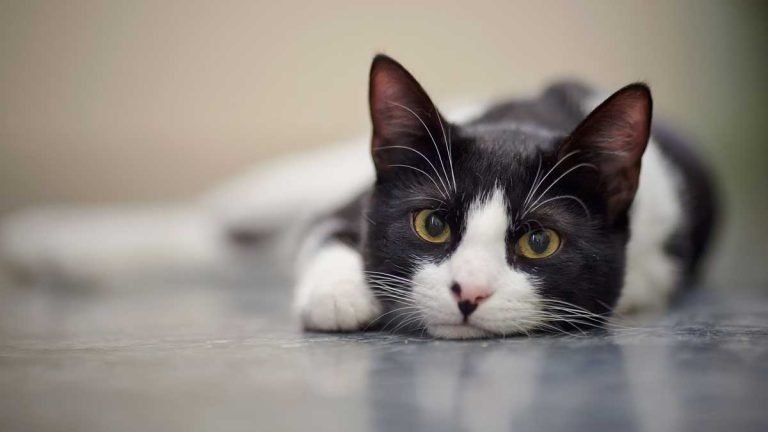25 Jun 2025
Poison warning issued over fake flea treatment
Clinicians and pet owners have been alerted to a counterfeit product that contains an insecticide that is toxic to cats.

Image: Azaliya (Elya Vatel) / Adobe Stock
An urgent warning has been issued following emergency surgery on a cat that was poisoned by a fake flea treatment containing a toxic insecticide.
The VMD has joined forces with the Government’s Intellectual Property Office (IPO) to plead for vigilance from pet owners when purchasing medicines.
The current alert is focused principally on a counterfeit form of the Frontline flea treatment, which was found to contain a potentially fatal insecticide, Pirimiphos-methyl.
Analysis carried out by scientists at the University of Bath also showed the sample was missing one of the genuine medicine’s main active ingredients, (S)-methoprene.
Emergency operation
One cat, named Smokey, had to spend a week in veterinary care including an emergency intestinal operation after being exposed to it.
His owner, Alan Wall from Preston, said: “Without the support of our vets and the extensive surgery they performed we know Smokey wouldn’t be with us today.”
VMD vet and efficacy assessor Heilin-Anne Leonard-Pugh said owners should seek veterinary advice “immediately” if they suspect their pet had been exposed to a fake product.
Exposure
She added: “Exposure to this insecticide can prevent the cat’s body from breaking down a substance called acetylcholine, leading to an overstimulation of the cat’s nervous system.
“This can cause symptoms such as vomiting, uncoordinated gait, muscle tremors, weakness, paralysis, increased sensitivity to touch, difficulty breathing, restlessness, urinary incontinence, low heart rate and seizures. In some cases, even death can sadly occur.”
The VMD added that it had issued 122 seizure notices for the sale of unauthorised animal medicines and supplements last year, preventing around 18,000 illegal items from reaching the public.
But the IPO’s latest analysis found nearly a quarter (24%) of participants had knowingly purchased a counterfeit product, with 17% saying they had done so without realising.
Price a factor
Among those who had bought fake products, 72% believed they would be of similar quality to the genuine items, while the same proportion said price was a factor in their decisions, while 60% cited ease of purchasing.
Helen Barnham, the IPO’s deputy director of enforcement, said: “We are a nation of animal lovers, and criminals dealing in counterfeits are targeting pet owners with complete disregard for the animal’s well-being.
“We are urging pet owners to be vigilant when purchasing any type of animal treatment and beware of any offers that ‘look too good to be true’.
“Counterfeiting is anything but a victimless crime and this latest discovery confirms this.”
Vigilance
The two organisations are encouraging consumers to be vigilant for signs of fake products, including poor quality products and packaging, missing instruction leaflets, spelling errors and instructions not being given in English, and be cautious about products which are much cheaper than those from other suppliers.
Owners that have been affected by a poisoning case are being urged to report them through the Veterinary Poisons Information Service and notify Trading Standards or Crimestoppers of any such products being offered for sale.
This morning, Boehringer Ingelheim UK and Ireland, which manufactures Frontline, issued a statement.
“The health, safety, and well-being of Frontline customers and their pets is our top priority and there are no quality or safety concerns with genuine Frontline products.
“Customers should take care to only buy genuine Frontline products and can find out where to purchase these on our website.
“If buying from an online marketplace, we recommend customers check who the product is sold by and fulfilled by. The star rating and seller feedback, number of reviews and whether they are pet specialist retailers is usually a good indicator of trusted sellers.”
- This article was updated at 11:45am on 25 June 2025 with an amended Boehringer Ingelheim statement
